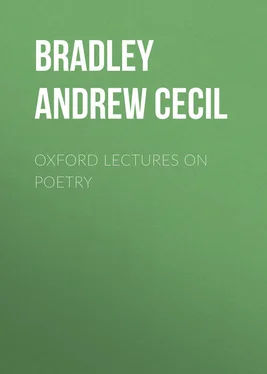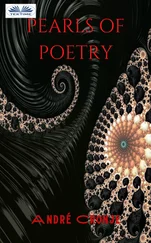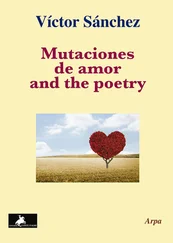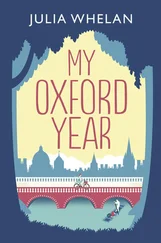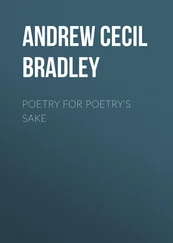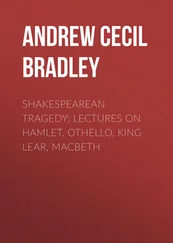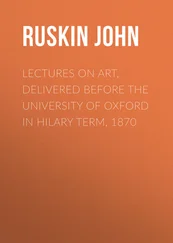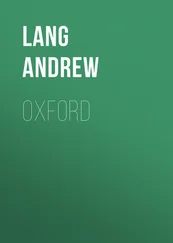Andrew Bradley - Oxford Lectures on Poetry
Здесь есть возможность читать онлайн «Andrew Bradley - Oxford Lectures on Poetry» — ознакомительный отрывок электронной книги совершенно бесплатно, а после прочтения отрывка купить полную версию. В некоторых случаях можно слушать аудио, скачать через торрент в формате fb2 и присутствует краткое содержание. ISBN: , Жанр: foreign_antique, foreign_prose, foreign_poetry, на английском языке. Описание произведения, (предисловие) а так же отзывы посетителей доступны на портале библиотеки ЛибКат.
- Название:Oxford Lectures on Poetry
- Автор:
- Жанр:
- Год:неизвестен
- ISBN:http://www.gutenberg.org/ebooks/36773
- Рейтинг книги:4 / 5. Голосов: 1
-
Избранное:Добавить в избранное
- Отзывы:
-
Ваша оценка:
- 80
- 1
- 2
- 3
- 4
- 5
Oxford Lectures on Poetry: краткое содержание, описание и аннотация
Предлагаем к чтению аннотацию, описание, краткое содержание или предисловие (зависит от того, что написал сам автор книги «Oxford Lectures on Poetry»). Если вы не нашли необходимую информацию о книге — напишите в комментариях, мы постараемся отыскать её.
Oxford Lectures on Poetry — читать онлайн ознакомительный отрывок
Ниже представлен текст книги, разбитый по страницам. Система сохранения места последней прочитанной страницы, позволяет с удобством читать онлайн бесплатно книгу «Oxford Lectures on Poetry», без необходимости каждый раз заново искать на чём Вы остановились. Поставьте закладку, и сможете в любой момент перейти на страницу, на которой закончили чтение.
Интервал:
Закладка:
Poetry in this matter is not, as good critics of painting and music often affirm, different from the other arts; in all of them the content is one thing with the form. What Beethoven meant by his symphony, or Turner by his picture, was not something which you can name, but the picture and the symphony. Meaning they have, but what meaning can be said in no language but their own: and we know this, though some strange delusion makes us think the meaning has less worth because we cannot put it into words. Well, it is just the same with poetry. But because poetry is words, we vainly fancy that some other words than its own will express its meaning. And they will do so no more – or, if you like to speak loosely, only a trifle more – than words will express the meaning of the Dresden Madonna. 11 11 Note F.
Something a little like it they may indeed express. And we may find analogues of the meaning of poetry outside it, which may help us to appropriate it. The other arts, the best ideas of philosophy or religion, much that nature and life offer us or force upon us, are akin to it. But they are only akin. Nor is it the expression of them. Poetry does not present to imagination our highest knowledge or belief, and much less our dreams and opinions; but it, content and form in unity, embodies in its own irreplaceable way something which embodies itself also in other irreplaceable ways, such as philosophy or religion. And just as each of these gives a satisfaction which the other cannot possibly give, so we find in poetry, which cannot satisfy the needs they meet, that which by their natures they cannot afford us. But we shall not find it fully if we look for something else.
And now, when all is said, the question will still recur, though now in quite another sense, What does poetry mean? 12 12 Note G.
This unique expression, which cannot be replaced by any other, still seems to be trying to express something beyond itself. And this, we feel, is also what the other arts, and religion, and philosophy are trying to express: and that is what impels us to seek in vain to translate the one into the other. About the best poetry, and not only the best, there floats an atmosphere of infinite suggestion. The poet speaks to us of one thing, but in this one thing there seems to lurk the secret of all. He said what he meant, but his meaning seems to beckon away beyond itself, or rather to expand into something boundless which is only focussed in it; something also which, we feel, would satisfy not only the imagination, but the whole of us; that something within us, and without, which everywhere
makes us seem
To patch up fragments of a dream,
Part of which comes true, and part
Beats and trembles in the heart.
Those who are susceptible to this effect of poetry find it not only, perhaps not most, in the ideals which she has sometimes described, but in a child’s song by Christina Rossetti about a mere crown of wind-flowers, and in tragedies like Lear , where the sun seems to have set for ever. They hear this spirit murmuring its undertone through the Aeneid , and catch its voice in the song of Keats’s nightingale, and its light upon the figures on the Urn, and it pierces them no less in Shelley’s hopeless lament, O world, O life, O time , than in the rapturous ecstasy of his Life of Life . This all-embracing perfection cannot be expressed in poetic words or words of any kind, nor yet in music or in colour, but the suggestion of it is in much poetry, if not all, and poetry has in this suggestion, this ‘meaning,’ a great part of its value. We do it wrong, and we defeat our own purposes, when we try to bend it to them:
We do it wrong, being so majestical,
To offer it the show of violence;
For it is as the air invulnerable,
And our vain blows malicious mockery.
It is a spirit. It comes we know not whence. It will not speak at our bidding, nor answer in our language. It is not our servant; it is our master.
1901
The purpose of this sentence was not, as has been supposed, to give a definition of poetry. To define poetry as something that goes on in us when we read poetically would be absurd indeed. My object was to suggest to my hearers in passing that it is futile to ask questions about the end, or substance, or form of poetry, if we forget that a poem is neither a mere number of black marks on a white page, nor such experience as is evoked in us when we read these marks as we read, let us say, a newspaper article; and I suppose my hearers to know, sufficiently for the purpose of the lecture, how that sort of reading differs from poetical reading.
The truths thus suggested are so obvious, when stated, that I thought a bare reminder of them would be enough. But in fact the mistakes we make about ‘subject,’ ‘substance,’ ‘form,’ and the like, are due not solely to misapprehension of our poetic experience, but to our examining what is not this experience. The whole lecture may be called an expansion of this statement.
The passage to which the present note refers raises difficult questions which any attempt at a ‘Poetics’ ought to discuss. I will mention three. (1) If the experience called a poem varies ‘with every reader and every time of reading’ and ‘exists in innumerable degrees,’ what is the poem itself, if there is such a thing? (2) How does a series of successive experiences form one poem? (3) If the object in the case of poetry and music (‘arts of hearing’) is a succession somehow and to some extent unified, how does it differ in this respect from the object in ‘arts of sight’ – a building, a statue, a picture?
A lyric, for example, may arise from ‘real’ emotions due to transitory conditions peculiar to the poet. But these emotions and conditions, however interesting biographically, are poetically irrelevant. The poem, what the poet says , is universal, and is appropriated by people who live centuries after him and perhaps know nothing of him and his life; and if it arose from mere imagination it is none the worse (or the better) for that. So far as it cannot be appropriated without a knowledge of the circumstances in which it arose, it is probably, so far, faulty (probably, because the difficulty may come from our distance from the whole mental world of the poet’s time and country).
What is said in the text applies equally to all the arts. It applies also to such aesthetic apprehension as does not issue in a work of art. And it applies to this apprehension whether the object belongs to ‘Nature’ or to ‘Man.’ A beautiful landscape is not a ‘real’ landscape. Much that belongs to the ‘real’ landscape is ignored when it is apprehended aesthetically; and the painter only carries this unconscious idealisation further when he deliberately alters the ‘real’ landscape in further ways.
All this does not in the least imply that the ‘real’ thing, where there is one (personal emotion, landscape, historical event, etc.), is of small importance to the aesthetic apprehension or the work of art. But it is relevant only as it appears in that apprehension or work.
If an artist alters a reality ( e. g. a well-known scene or historical character) so much that his product clashes violently with our familiar ideas, he may be making a mistake: not because his product is untrue to the reality (this by itself is perfectly irrelevant), but because the ‘untruth’ may make it difficult or impossible for others to appropriate his product, or because this product may be aesthetically inferior to the reality even as it exists in the general imagination.
For the purpose of the experiment you must, of course, know the sounds denoted by the letters, and you must be able to make out the rhythmical scheme. But the experiment will be vitiated if you get some one who understands the language to read or recite to you poems written in it, for he will certainly so read or recite as to convey to you something of the meaning through the sound (I do not refer of course to the logical meaning).
Читать дальшеИнтервал:
Закладка:
Похожие книги на «Oxford Lectures on Poetry»
Представляем Вашему вниманию похожие книги на «Oxford Lectures on Poetry» списком для выбора. Мы отобрали схожую по названию и смыслу литературу в надежде предоставить читателям больше вариантов отыскать новые, интересные, ещё непрочитанные произведения.
Обсуждение, отзывы о книге «Oxford Lectures on Poetry» и просто собственные мнения читателей. Оставьте ваши комментарии, напишите, что Вы думаете о произведении, его смысле или главных героях. Укажите что конкретно понравилось, а что нет, и почему Вы так считаете.
